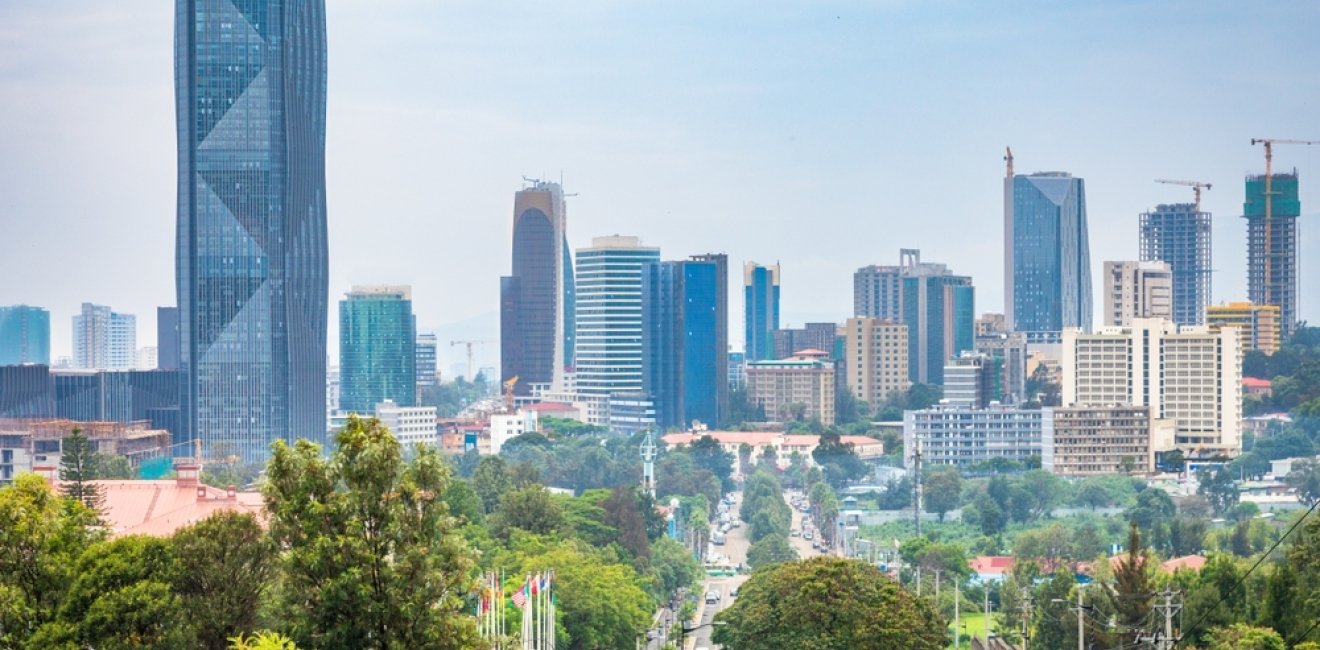The Horn of Africa region is encountering manifold crises, including internal armed conflicts, terrorism, drought, and famine. Accompanying the prevailing conflict and insecurity in each state, inter-state tensions exist in the region, such as the conflict between Ethiopia and Somalia. Moreover, owing to the region’s strategic significance, various extra-regional powers such as Egypt, the United Arab Emirates (UAE), Turkey, China, and Russia have increased their engagement in the Horn of Africa.
At the same time, the efforts of existing multilateral and regional institutions, such as the Inter-Governmental Authority on Development (IGAD), to manage these complex problems are often futile. Against this backdrop, states in the region are increasingly resorting to minilateralism. This trend, in turn, significantly affects the functionality of regional mechanisms and regional security. What follows is a discussion of contemporary minilateral practices in the Horn of Africa and their implications for regional peace and security.
The Rise of Minilateralism
Minilateralism has become the popular modus operandi of 21st-century international relations among states. As a concept, minilateralism is quite fluid. It indicates a grouping of a small number of like-minded states pursuing mutual goals. It is considered a nimble and more targeted approach than multilateralism where “the smallest possible number of countries needed to have the largest possible impact on solving a particular problem.” In contrast to the traditional multilateral system, minilateralism delivers speed, ad hoc flexibility, a level of informality, and innovative experimentalism to diplomatic initiatives.
There has been a myriad of minilateral arrangements across the world such as the Quadrilateral Security Dialogue among the United States, Japan, India, and Australia; Trilateral frameworks between UAE, India, and France; the I2U2 group, composed of India, Israel, the United States, and the UAE; the BRICS block, which primarily is composed of Brazil, Russia, India, China, and South Africa; and MIKTA group which is composed of Mexico, Indonesia, South Korea, Turkey, and Australia.
The proliferation of minilateralism recently is attributed to several factors. One of the reasons is the failure of prevailing multilateral and regional institutions to deal with complex issues. For example, the rise of minilateral initiatives in the Indo-Pacific region is partly the byproduct of increasing fragmentation and the inability of the region’s principal governing body, the Association of South East Asian Nations (ASEAN), to properly coordinate initiatives between member states
Besides these institutional factors, the convergence of interests and threat perceptions among states facilitate the practice of minilateralism. In other words, when the strategic priorities of states are closely allied, it paves the way for minilateral arrangements among them.
Minilateralism in the Horn of Africa
In recent years, the Horn of Africa has exhibited a trend toward minilateralism. Domestic political transitions have been critical drivers for this trend, along with strategic developments, shared interests among states, and extra-regional engagements.
These minilateral arrangements involve diverse actors, within and outside the Horn region. They are reflected mainly through the shifting alliance of states and ad hoc reconfigurations in the volatile region. They have been particularly informal, in part because of the lack of transparency in diplomatic discussions and agreements.
Often, the minilateral arrangements in the Horn are undertaken amidst domestic political transitions. These transitions took place in Ethiopia in 2018, Sudan in 2019, and Somalia in 2022, and resulted in new dynamics of inter-state relations and minilateral practices in the region.
For example, one of the recent minilateral experiences in the Horn of Africa has been the trilateral cooperation between Ethiopia, Eritrea, and Somalia, which is dubbed the Horn of Africa Cooperation. The three countries signed a joint declaration on comprehensive cooperation in September 2018 and also a joint plan of action in January 2020. However, the new leadership in Somalia following the May 2022 election and the Pretoria Agreement that ended a two-year-long war in northern Ethiopia have quickly changed the Addis Ababa-Asmara-Mogadishu alliance.
In part, minilateralism in the Horn of Africa is the extension of the existing bilateral relations. Much as the rapprochement between Ethiopia and Eritrea in 2018 served as the basis for the Horn of Africa Cooperation framework, rising tensions between Ethiopia and Somalia presents a comparable opportunity for new minilateral practices. This tension has emerged following the signing of a Memorandum of Understanding between Ethiopia and Somaliland on January 01, 2024, which allows Ethiopia a 50-year lease on 20km of Somaliland’s coast for sea access and the construction of a military base in exchange for recognizing a self-proclaimed independent state of Somaliland.
The Ethio-Somaliland port deal has rapidly changed the geopolitical landscape of the Horn region with an emerging minilateral cooperation between Somalia, Eritrea, and Egypt. The three countries, who are at loggerheads with Ethiopia, held a trilateral meeting on October 10, 2024, after frequent high-level state visits and bilateral engagements with each other.
The recent practice of minilateralism in the Horn of Africa has also shown functional issue-based coalitions among states. The notable example in this regard is the Somalia Frontline States Summit which was held on 1st February 2023. This dialogue was attended by the leaders of Somalia and its neighboring countries:- Djibouti, Ethiopia, and Kenya. The Frontline State leaders agreed to carry out joint operations in the areas that remain under control of the terrorist group Al-Shabaab. They also endorsed Somalia’s quest to completely lift the arms embargo imposed on the country since the early 1990s, which was removed later under the UN Security Council Resolution 2714/2023.
Minilateralism, by its very nature, is not inclusive. Accordingly, its practice in the Horn of Africa hinders the development of comprehensive approaches to address common regional security issues.
Finally, minilateralism in the Horn of Africa has also been undertaken in the context of recent engagement by foreign powers in the region. In this regard, one such example has been the cooperation between the UAE, Somaliland, and Ethiopia. In 2017, they made a concessional agreement on Berbera port that distributes a 30% share of the port to the Somaliland government, 19% to Ethiopia, and 51% to UAE. Moreover, the Quint group on Somalia, which includes Qatar, Turkey, the UAE, the United Kingdom, and the US as well as the Troika group of Norway, the United Kingdom, and the US on South Sudan demonstrates another minilateral engagement in the Horn of Africa.
Implications of Minilateralism
Diverse minilateral practices in the Horn of Africa present mixed results for states and the wider region. On the one hand, some minilateral groups contribute to the influx of humanitarian aid, development assistance, infrastructure development, and serve as forums for dialogue.
Despite this, minilateral arrangements have destabilizing implications for regional security in various ways. Minilateralism, by its very nature, is not inclusive. Accordingly, its practice in the Horn of Africa hinders the development of comprehensive approaches to address common regional security issues. This will further weaken prevailing multilateral and regional institutions, such as IGAD, in their effort to maintain peace and stability in the Horn of Africa.
Inter-state tensions and the various crises in the region, such as the ongoing armed conflict in Sudan and Ethiopia, the Al-Shabaab menace, and, more recently, the resurgence of Islamic State (IS) in Somalia, all require multilateral and regional approaches rather than an ad hoc coalition of select states. Considering the level of antagonism among states in the region, the trend of minilateralism will further exacerbate inter-state tensions and increase the risk of direct and proxy conflicts in the region.
Moreover, while the Somalia Frontline States summit contributed to the fight against Al-Shabaab, ongoing tensions between Ethiopia and Somalia will potentially jeopardize the fight against terrorism in the region. This is further complicated by the withdrawal of the current African Union Transition Mission in Somalia (ATMIS) and its transition to a new AU-led mission in Somalia as of January 2025.
Additionally, minilateral practices will bring increasing competition for influence in the Horn of Africa and the Red Sea region among extra-regional actors such as the UAE, Turkey, and others.
In general, the Horn of Africa region has recently experienced diverse forms of minilateralism impacting the peace and security of the region. Addressing the adverse impacts of minilateral practices requires strengthening multilateral and regional institutions such as IGAD and their engagements with the most pressing security concerns in the Horn of Africa. Furthermore, it is important to develop inclusive cooperation initiatives and confidence-building measures among states in the region.







